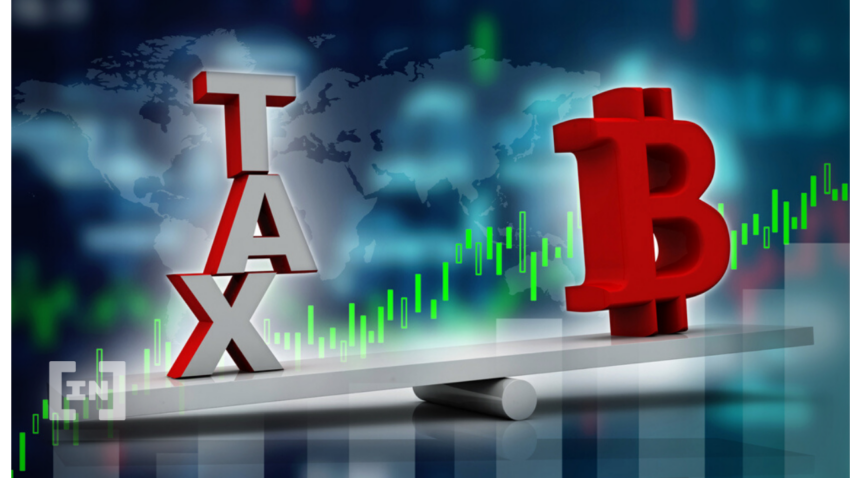The new taxation regime for virtual digital assets is set to take effect in India from April 1.
Meanwhile, investors have been looking at ways to reduce their tax liability. Some are even considering selling their holdings before the start of the next month. Be[In]Crypto spoke to Advocate Rajat Mittal, tax counselor with the Supreme Court of India, to clear confusion around crypto-asset treatment. Especially when an increasing number of social media influencers are suggesting ways to get around the 30% tax rule. Mittal points out that there is a line of demarcation between legitimate tax planning and illegitimate tax evasion.
Cashing out in March
With regard to influencers suggesting selling crypto holdings before April 1 to evade tax liability, Mittal says, “That is the wrong thing to suggest.”
“You may not have to pay tax under the new regime if you sell off all your holdings and cash it out in the month of March.” However, all investors will still have to pay taxes on the profits and gains that they have made, the tax expert specified.
Having said that, Mittal highlights that booking any profits prior to April 1 only gives the taxpayer the “liberty to choose” a different taxation treatment. For instance, discharging tax under the income tax slab rate or treating crypto as capital assets.
On the other hand, Rajat Mittal highlights that not reporting gains made on decentralized and non-KYC compliant exchanges is a “clear cut case of tax evasion” and can be “very costly.” Considering, the government “can go back at least five or six years and do your assessments.”
Clarification around 1% TDS
Again, the collection of tax deducted at source or TDS becomes tricky on any decentralized platform. The government had clarified that the onus of 1% TDS will be on the purchaser from July 2022. However, Mittal argued that the government needs to clarify who’s a seller and purchaser if both parties are exchanging tokens. The advocate explained, “If you are selling USDT and buying an equal amount of Bitcoin, both of us are sellers.”
In this case, the exchange also can’t deduct the TDS as it acts as a custodian, Mittal added. Therefore, more clarification might come from the government in this regard.
Calculating the cost of acquisition
We know that last week, the finance bill was pushed with amendments that further tightened the law. The legislation doesn’t allow any set-offs or deductions, except the bare cost of acquisition. Mittal explained that the cost of acquisition would only mean the cost of buying a particular asset, i.e. the price at which it was bought along with the trading fees.
However, the tax expert argues on the “restrictive” view of calculating the cost of acquisition. Something that fails to consider cases of staking yields and crypto Airdrops. Which, in his opinion, could be subsequently taxed when they are actually sold in the market.
When it comes to crypto gifts, Mittal stated that “Transaction between two strangers up to Rs 50,000 ($658) will continue to remain exempt.”
Apart from that, what is worth noting is that crypto gifts within a family will also not face a tax brunt, Mittal explained.
Additional liabilities above tax
Apart from the 30% tax application on crypto transactions, Mittal clarified that the government levies a 4% cess on the tax liability. He stated, “So if my tax liabilities are 30%, then 4% of 30% i.e. 1.2% will be the cess.”
Meanwhile, Mittal believes clarity is required if the surcharge will also be applicable over and above the crypto tax and cess. Considering, surcharge is applicable on income tax paid as per slab rates, the advocate argued.
Transferring tokens between exchanges
In addition to the direct tax liabilities, Mittal also clarified that “right now, there is no restriction on you to transfer your assets from a centralized Indian exchange to another international exchange.”
Therefore, moving of funds between exchanges will not attract 30% tax or 1% TDS as far as it is reported to the government, Mittal noted.
What do you think about this subject? Write to us and tell us!
Trusted
Disclaimer
In adherence to the Trust Project guidelines, BeInCrypto is committed to unbiased, transparent reporting. This news article aims to provide accurate, timely information. However, readers are advised to verify facts independently and consult with a professional before making any decisions based on this content. Please note that our Terms and Conditions, Privacy Policy, and Disclaimers have been updated.


